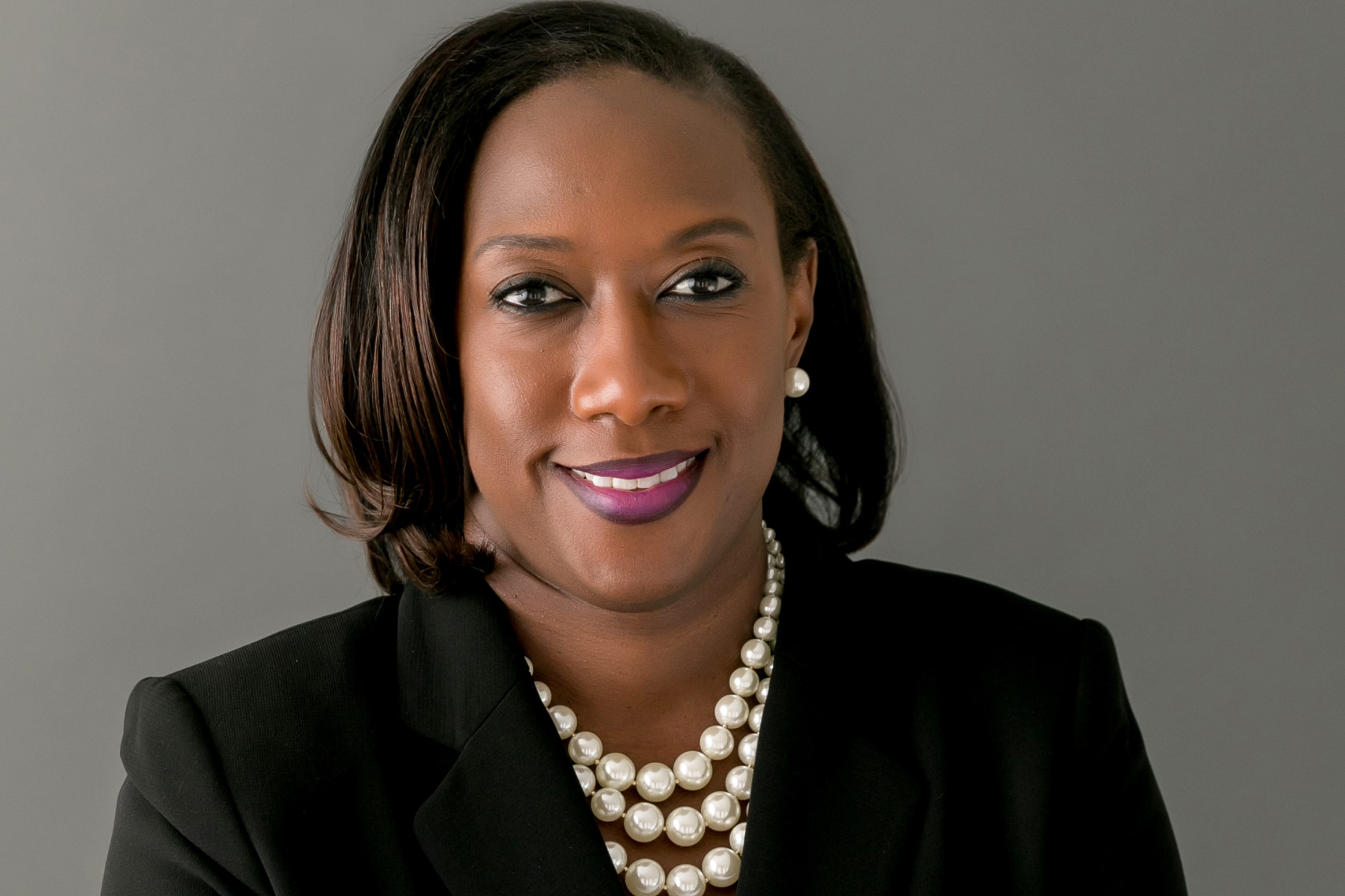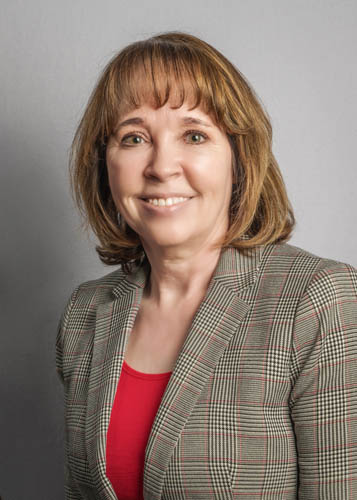
Tomikia P. LeGrande began June 1 in her new role as president of Prairie View A&M University.
As the newly appointed president of Prairie View A&M University, one of the nation's largest historically black colleges and universities (HBCUs), Tomikia P. LeGrande has come full circle.
It was a historically black university where she got her start as a chemistry major and a student activist. Witnessing firsthand the racial disparities in higher education, LeGrande took it upon herself to effect change. Throughout a 20-year career, she has dedicated herself to expanding college access and reforming higher education institutions to better serve students.
As vice president for strategy, enrollment management and student success at Virginia Commonwealth University, LeGrande led an innovative transformation of student financial advising that won an award from the Governor of Virginia.
Now, she steps into the role of ninth president of 147-year-old Prairie View, where she hopes to continue her student-centered approach.
“It brings me great joy to be able to go back to an HBCU, after all my experiences, to contribute what I’ve learned,” said LeGrande, who earned her doctorate in higher education administration from Texas Tech University in 2016.
As LeGrande prepared to begin her tenure at Prairie View on June 1, she spoke to the College of Education about her journey from student activist to university president and how Texas Tech has helped her in her mission to uplift underserved students.
What does it mean to you to be named president of Prairie View A&M University?
I went to a historically black university, Savannah State University, as an undergrad, and that experience really helped me identify who I was. It helped me build my confidence and build a certain skill set.
But as I have moved throughout my career, I have found that there are populations of students who come from different and diverse backgrounds, who don’t always have the best experiences in our universities. Oftentimes it's because those experiences have been designed so many years ago. Students have changed, and universities have not kept pace.
I have spent my career helping institutions keep students at the center of our work and re-organizing, restructuring, rethinking and redesigning around students.
I believe that historically black colleges have had to do that from their inception. It brings me great joy to be able to go back to an HBCU, after all my experiences, to contribute what I’ve learned. I remember the power that HBCUs have had in pouring into and transforming me into a professional and active citizen.
What was your experience like at Texas Tech?
When I came to Texas to work at the University of Houston-Downtown, I knew I wanted to pursue a terminal degree in Texas. I just didn’t know where. So, I looked at institutions that had an education doctorate and faculty who were researching topics that were interesting to me. It also had to be online because I was working full-time as dean of enrollment management at the time.
Texas Tech rose to the top of that list. Then I had the opportunity to meet Dr. Stephanie Jones, who was the doctoral program director at the time and ended up being my dissertation chair.

I was able to speak with her about her research and her interests – basically, women in leadership – and I felt I had a kindred spirit. She was someone who had a passion for women and leadership development in organizations. She also had a high standard of excellence, which I appreciated.
While the program is largely online, it does require a residency, so it gives you a good opportunity to build community with your cohort and, to be honest, provides peer accountability. Once you’re in a cohort, it’s really kind of this idea that we came together and we leave together. There's a pushing of one another to get to that end goal.
I also found that the faculty were practitioners in their fields. Valerie Paton, who teaches higher education law, worked in the Office of the Provost. Justin Louder is associate vice provost over online learning.
The individuals with whom we were able to interact really helped challenge our thinking and prepared us to contribute at the most senior levels in higher education.
The Governor of Virginia named you a “Champion of Change” for creating VCU’s Student Financial Services Center. Tell me more about that.
What we learned through a series of surveys was that students really appreciated the experience they were having with their academic advisor. They felt like their academic advisor cared for them, spent time with them, could talk through their goals and challenges.
But they really hated everything associated with money. They rated it very low. So, we took that information and redesigned how students engaged with finances.
A lot of VCU students are the first in their family to attend college. A third of them are Pell Grant recipients. Many of them don't even know what questions to ask when it comes to finances, but we were waiting on them to come ask for help.
Now, each undergraduate student at VCU is assigned a financial counselor along with their student academic advisor. The financial counselor assists students with finances while also utilizing the experience of paying for college as a way to teach financial literacy. The whole billing experience becomes a lesson in financial literacy with the objective of making college more affordable, so students can stay and graduate.
What motivated you to pursue a career in academia in the first place?
As an undergraduate student at Savannah State, I was a student activist. I saw there were true inequities that existed in the world between haves and have-nots.
I was also a chemistry major, and I was going to become a high school chemistry teacher. I spent a summer at the University of Oklahoma doing research with a person by the name of Michael Ashby, who is a chemical educator. He was researching the disparities between women and minorities in science, technology, engineering and math (STEM) disciplines.
I didn’t understand what he meant. I went to an HBCU, and 80% of the students in the chemistry department were black women. What do you mean women and people of color don’t study chemistry?
Then we went to a conference, and the disparities became very real. I could see that I was one of few in the audience. I could see at that moment that education could be my activism platform. I saw that education is a pathway to social mobility.
That’s how I got into higher ed. I became a recruiter for the chemistry department. I led a pre-college program that encouraged students to explore STEM disciplines in college. I have overseen undergraduate admissions. I have overseen enrollment management, advising, student success and life units – anything that touches the student experience.
What advice would you give to people starting or considering a career in higher education?
Really get involved in your institution to learn more about how it operates, how its funded. Where are the influencers in an organization? Where are the detractors? What are the aspects of an organization you know little about? Serve on committees, things of that nature, as you are learning your job.
If you think you want a career in higher education, then you need to be as informed about how this business operates so you can then get to the table to offer perspective that may not have been there before.
I think for me my entire career has been spent asking, "How do I get a seat at the table to improve the outcomes for students who are often left behind?" If your motive is true – about making this environment better for students or faculty or staff – then you will find ways that you can get to tables to learn more and to contribute a little bit. And as you learn more, you’ll have more to contribute. You will forever be a student if you pursue a career in higher education.
What was your most treasured memory of your time at Texas Tech?
My most treasured time at Texas Tech was my cohort's summer residency together. It was about 20 of us, and each year you saw us get a little closer.
I have a tribe of four including myself. We call ourselves the Fab Four. Even to this day we have a group text. When something happens or there is an accomplishment among us, or a child is graduating, we celebrate that together.
I have built some lasting friendships. And I have some lifelong colleagues, because if I'm in north Dallas, for example, I have someone I went to Tech with there. I tell them I’m going to be in the area, and we have lunch. Same thing in Prairie View or in Houston.
The camaraderie and collegiality that you build with colleagues – that’s what I valued most. I feel the same way about professors. I still keep in contact with Dr. Jones and others. You build those lasting connections with people.
Many people thought with me being online that I wouldn't have a sense of pride about Texas Tech. But I know when the Red Raiders are playing a basketball game. When I go somewhere and I see someone wearing a Texas Tech hat, we do the Guns Up.
